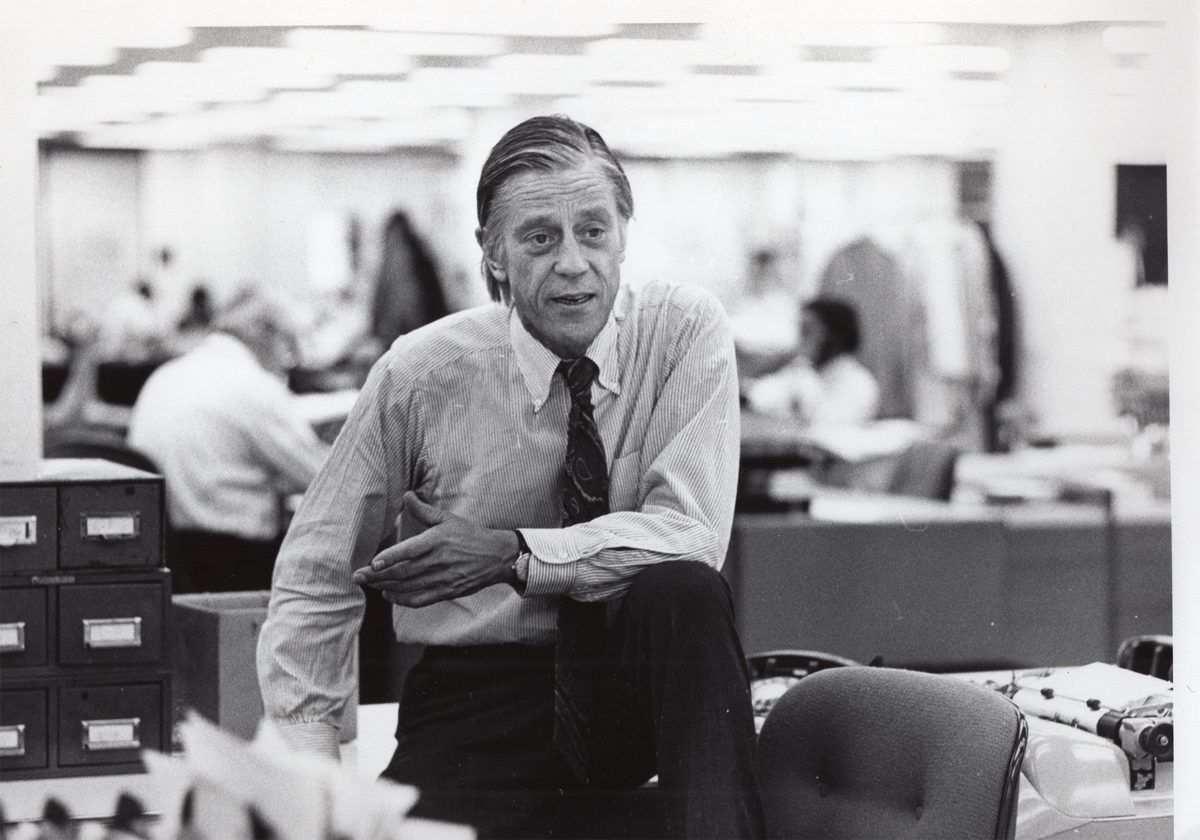
We’ll be hearing a great deal this winter about the legendary Editor of the Washington Post who was largely credited with taking down President Richard Nixon in 1974 as Ben Bradlee is the focus of two major movies. In January he’ll be portrayed by Tom Hanks in The Post a fictionalized account of the Watergate scandal, but before then Bradlee’s life is the subject of an HBO documentary that is being screened in December
Directed by John Maggio, The Newspaperman : The Life and Times of Ben Bradlee starts with his rather privileged childhood in Boston. At High School however he developed polio and to everyone’s surprise after he determinedly did rigorous exercise he not only fought the effects of the disease but fully recovered without even a hint of a limp. It was an early indication of how driven he would always be to get what he wanted.
When he graduated University in 1942 he married his first wife Jean Saltonstall and received his Naval Commission. After the war he did stints as a reporter before working in the US embassy in Paris official as part of their Information and Education Exchange, and unofficially for the CIA too. Whilst there he married wife number two.
It was whilst he was Washington Bureau Chief of Newsweek during the 1950’s that he became very friendly with John and Jacqueline Kennedy. Both men had at been at Harvard barely two years apart and had the same Boston roots, and soon the two married couples became inseparable. When Kennedy became President many people questioned the ethical dilemma of a being that close to residents of The White House and being able to remain impartial.
Now in hindsight the questions raised about the two men’s relationship are more to do with the fact that everybody, including Bradlee’s third wife the journalist Sally Quinn, maintain that Bradlee had no idea at all of Kennedy’s womanizing and his nefarious affairs.
Of course the core of this flattering profile is Bradlee’s key role in the Watergate affair which proved to be a watershed event in American journalism and the First Amendment. There is a whole list of the great and famous, including Carl Bernstein, Henry Kissinger etc who lined up to testify on camera of how vital Bradlee’s leadership was during that period. Even more telling about what motivated him to stick to the somewhat rocky road the paper went down is a plaque that is now on a wall at the Washington Post headquarters with a quote from Bradlee “The truth, no matter how bad, is never as dangerous as a lie in the long run.”
The movie also covers other events on Bradlee’s watch that were controversial for the wrong reasons as in the case of Janet Cooke in 1980. She was a reporter whose Pulitzer Prize-winning account of an eight-year-old heroin addict was later revealed to be fabricated.
Their is such an old-fashioned ring to the piece when good newspapermen were held in such high regard, and the nicest touch Maggio’s film of all to is the fact this very respectful tribute is narrated by Bradlee himself, and was taken from an audio reading that he once did of his memoir “A Good Life.”
There is also a very timely aspect to the film being made because Watergate occurred on the watch of a President who violently loathed all media because it dared to print the truth. Sounds very familiar now.

